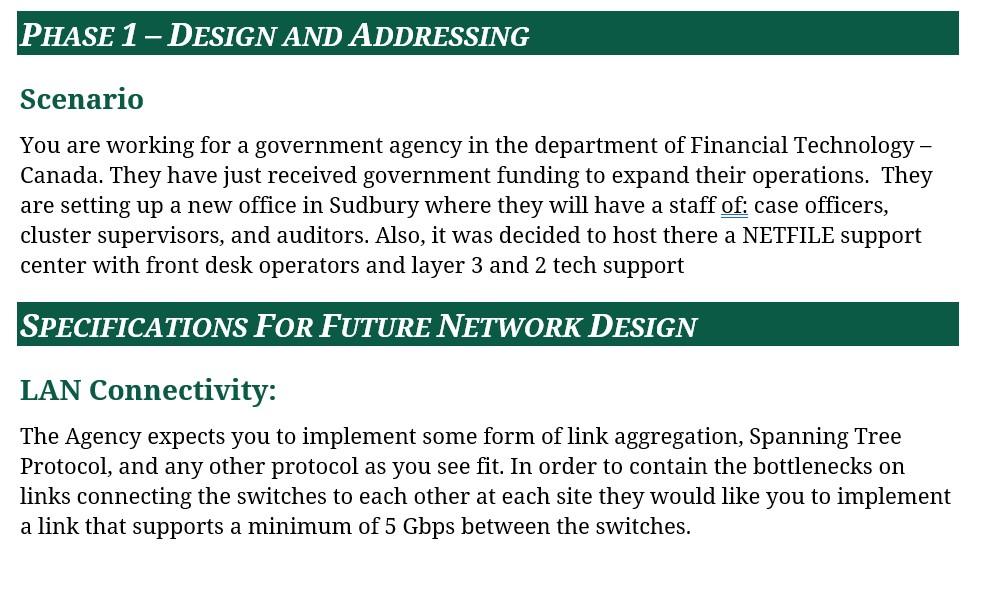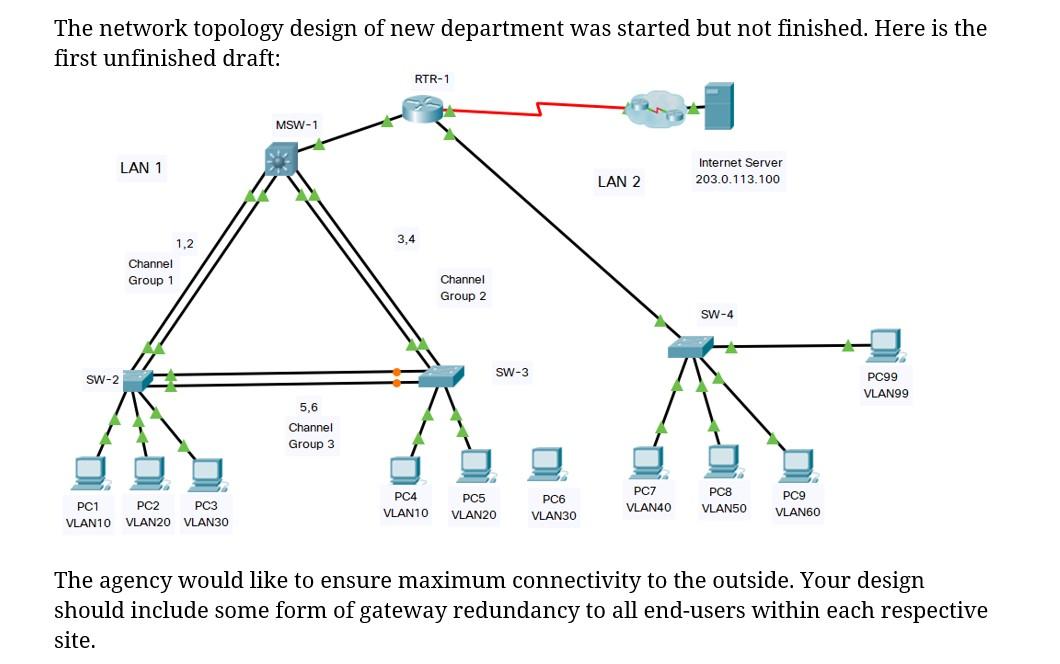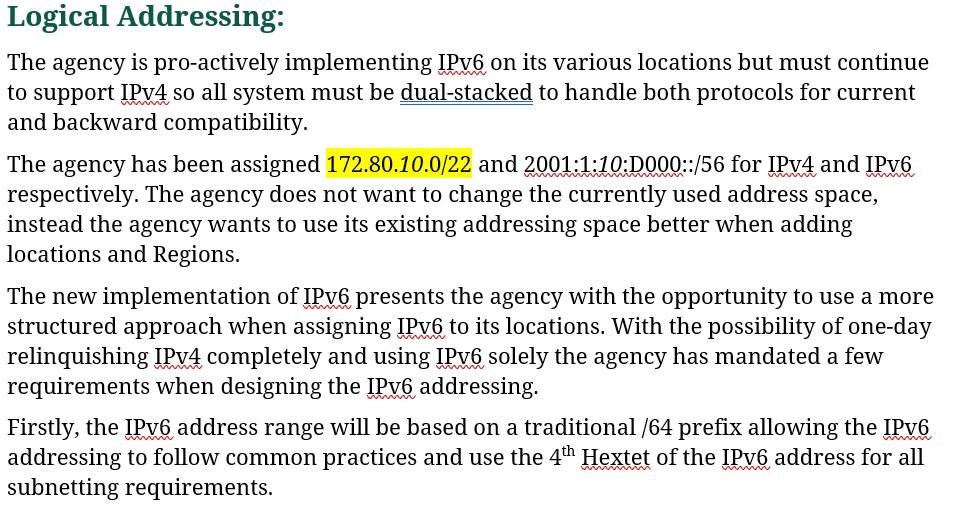




Scenario You are working for a government agency in the department of Financial Technology Canada. They have just received government funding to expand their operations. They are setting up a new office in Sudbury where they will have a staff of: case officers, cluster supervisors, and auditors. Also, it was decided to host there a NETFILE support center with front desk operators and layer 3 and 2 tech support SPECIFICATIONS FOR FUTURE NETWORK DESIGN LAN Connectivity: The Agency expects you to implement some form of link aggregation, Spanning Tree Protocol, and any other protocol as you see fit. In order to contain the bottlenecks on links connecting the switches to each other at each site they would like you to implement a link that supports a minimum of 5Gbps between the switches. The network topology design of new department was started but not finished. Here is the first unfinished draft: The agency would like to ensure maximum connectivity to the outside. Your design should include some form of gateway redundancy to all end-users within each respective site. Logical Addressing: The agency is pro-actively implementing IPv6 on its various locations but must continue to support IPv4 so all system must be dual-stacked to handle both protocols for current and backward compatibility. The agency has been assigned 172.80.10.0/22 and 2001:1:10:D000::/56 for IPv4 and IPv6 respectively. The agency does not want to change the currently used address space, instead the agency wants to use its existing addressing space better when adding locations and Regions. The new implementation of IPv6 presents the agency with the opportunity to use a more structured approach when assigning IPv6 to its locations. With the possibility of one-day relinquishing IPv4 completely and using IPv6 solely the agency has mandated a few requirements when designing the IPv6 addressing. Firstly, the IPv6 address range will be based on a traditional / 64 prefix allowing the IPv6 addressing to follow common practices and use the 4th Hextet of the IPv6 address for all subnetting requirements. Secondly, the agency has requested that within the fourth Hextet there must be the following Hexadecimal identifiers: a hexadecimal identifier for the Region (Sudbury 705) and a Hexadecimal identifier for each Network Segment. Based on expected loads on the network from staff and remote users, the IT managemen team has created an estimate of the number of IP addresses that will be needed in each location. NOTE: if needed - use loopback interfaces to emulate a LAN segment. Table 1 1. A complete network topology (preferably using Visio) for your network including port assignments, links, protocols that will be used. (Packet Tracer topologies are not acceptable for this requirement.) 2. A full explained and well-documented network addressing scheme for both IPv4 and IPv6, preferably in an Excel table. Your addressing schematic should list at a minimum the Network ID, subnet mask, first host and last host, and broadcast address (where appropriate) for each segment. a. Ensure that you have minimum number of host addresses wasted for IPv4 addressing. 3. A word processor document explaining your chosen topology, and a justification for each of the protocols that will be implemented. 4. Zip all files into one zip file (do not use WinRAR) and submit the one zip file to the appropriate drop box in DC Connect. DO NOT submit any .pdf documents











